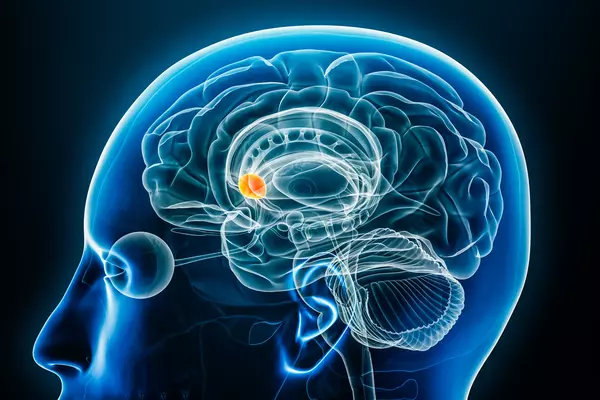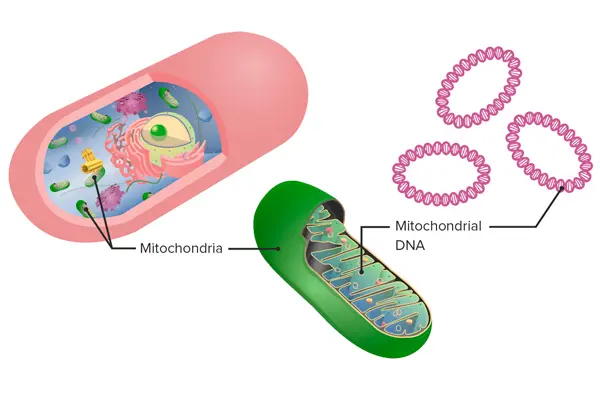Serotonin transporter sert

If you tested your DNA with a personal genomics service like 23andMe, AncestryDNA, FamilyTreeDNA, MyHeritage or another testing company, you can learn more about your risk factors for hundreds of diseases. By clicking the button above ⬆️, you can upload your raw DNA data file and receive a personalized 250-page health report with research links that is the most comprehensive.
In humans, the SLC6A4 gene encodes a protein referred to as both the sodium-dependent serotonin transporter and solute carrier family 6 member 4. This protein is commonly known as the serotonin transporter.
The study of genetic variation can help us understand how behavioral diversity evolves and persists. Genes in the serotonin signaling pathway, like SERT, may impact animal personality, cognition, and fitness. To explore this relationship further in great tits (Parus major), we examined how variations in SERT polymorphisms might be related to neophobia, exploratory behavior performance during obstacle removal tests at their nest boxes or laying date as well as problem-solving abilities measured by single nucleotide polymorphism testing for birds. We found some indications that certain SNPs were connected to these behaviors such as more successful attempts when homozygous AA minor alleles carried exon 1 SNP226 vs higher chances among both sexes but most notably females who had CCs on Exon 9's exchange location- all exhibiting positive relationships though statistically significant results only appeared once corrected from multiple comparisons made. This research lays a strong foundation for future studies assessing the role genetics play regarding cognitive differences amongst wild animals populations.
Follow the link of the selected polymorphism to read a brief description of how the selected polymorphism affects Serotonin and see a list of existing studies.
SNP polymorphisms related to the topic Serotonin:
| rs1799913 | Variants in the tryptophan hydroxylase gene involved in the development and treatment of opiate, heroin and cocaine addiction. |
| rs1386494 | TPH2 gene polymorphism increases the risk and magnitude of depressive disorder. |
| rs6313 | TPH-2 polymorphisms affect response to treatment with antidepressants and SSRIs. |
| rs4570625 | The TPH2 gene variant is associated with attention-deficit/hyperactivity disorder. |
| rs1042173 | The serotonin transporter gene SLC6A4 is associated with premenopausal and perimenopausal hot flashes and headache. |
| rs6314 | The serotonin receptor gene HTR2A polymorphism is associated with bipolar affective disorder and autism spectrum disorder. |
| rs2276302 | The HTR3B gene is associated with alcoholism with antisocial behaviour. |
| rs17110563 | The gene breakage is linked to bipolar affective disorder. |
| rs6295 | The 5-HT1A gene polymorphism increases the risk and magnitude of depressive disorder. |
| rs6305 | Serotonin transporter and serotonin receptor gene polymorphisms are associated with susceptibility to substance abuse. |
| rs3742278 | Serotonin receptor gene HTR2A polymorphism is associated with panic disorder features. |
| rs7984966 | Serotonin receptor gene HTR2A polymorphism as a possible predisposing factor for aggressive traits. |
| rs1928040 | Polymorphisms of the gene encoding serotonin 2A receptor affect response to antidepressant treatment. |
| rs9316233 | Polymorphisms of the gene encoding serotonin 2A receptor affect response to antidepressant treatment. |
| rs878567 | HTR1A serotonin receptor gene polymorphism is associated with neuroticism, major depression and anxiety disorders. |
| rs1328674 | Genetic variations in the serotonin 5-HT2A receptor gene are associated with rheumatoid arthritis. |
| rs6311 | Genetic factors specific to obsessive-compulsive disorder. |
| rs17722134 | Gene modification affects the severity of ADHD. |
| rs11568817 | Functional polymorphisms in the serotonin receptor gene HTR1B predict increased anger and hostility. |
| rs1062613 | Fear reactivation and symptoms of combat-related PTSD: specificity and preliminary study of the effect of the 5-HT3A receptor gene. |
| rs1176713 | Common variants of the HTR3 gene are associated with obsessive-compulsive disorder. |
| rs9325202 | Breakage of the tryptophan hydroxylase gene promotes dishonest behaviour. |
| rs1843809 | Breakage of the tryptophan hydroxylase 2 (TPH2) gene associated with attention deficit hyperactivity disorder. |
| rs7997012 | Associations of the serotonin receptor gene HTR2A with bipolar disorder and major depressive disorder. |
| rs7224199 | Association with major depression and response to antidepressants. The polymorphism is associated with selective serotonin and serotonin-norepinephrine reuptake inhibitor response in depressive disorder. |
| rs140700 | A variant of the serotonin transporter gene (SLC6A4) is associated with suicidal behaviour in schizophrenic patients. |
| rs2020933 | A serotonin transporter gene whose function affects all cellular serotonin systems. |
| rs1487278 | A polymorphism in the tetrahydrobiopterin pathway gene is associated with an increased risk of autism. |
| rs28914829 | A polymorphism in the serotonin transporter locus (SLC6A4) predisposes to autism and compulsive rigid behaviour. |
| rs2066713 | A functional serotonin transporter gene polymorphism is associated with major depression, schizophrenia and ADHD. |
| rs6296 | |
| rs6312 | |
| rs130060 | |
| rs211107 | |
| rs676643 | |
| rs1386488 | |
| rs1549339 | |
| rs1805055 | |
| rs2129785 | |
| rs2224721 | |
| rs2276307 | |
| rs4565946 | |
| rs7330636 | |
| rs7725785 | |
| rs9316232 | |
| rs9567737 | |
| rs9567746 | |
| rs10748189 | |
| rs10879346 | |
| rs11077820 | |
| rs11179003 | |
| rs11604247 | |
| rs11657536 | |
| rs11867581 | |
| rs12583882 | |
| rs12805047 | |
| rs17288723 | |
| rs17706602 | |
| rs34550504 | |
| rs35201864 | |
| rs35815285 | |
| rs45570136 | |
| rs56232120 | |
| rs61907889 | |
| rs76303657 | |
| rs78932366 | |
| rs79779791 | |
| rs79874540 | |
| rs114014601 | |
| rs118187155 | |
| rs145278314 | |
| rs146375175 | |
| rs146411553 | |
| rs147198243 | |
| rs200889198 | |
| rs201779669 | |
About The Author
Li DaliLi Dali, a National Foundation for Outstanding Youth Fund recipient, is a researcher at the School of Life Sciences in East China Normal University. He earned his PhD in genetics from Hunan Normal University in 2007 and conducted collaborative research at Texas A&M University during his doctoral studies. Li Dali and his team have optimized and innovated gene editing technology, leading to the establishment of a world-class system for constructing gene editing disease models.


